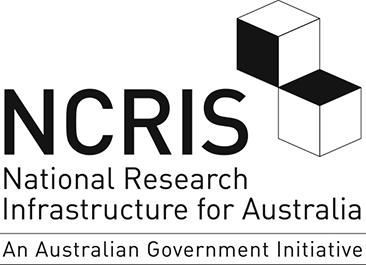
User access at the National Deuteration Facility
Proposal submissions to the National Deuteration Facility are accepted for access to NDF capabilities for provision of deuterated and multiple isotopically labelled molecules for neutron scattering and other applications including mass spectrometry (MS) and nuclear magnetic resonance (NMR) or for investigation of the deuterium kinetic isotope effect (DKIE) on material properties.
The NDF utilises both Chemical Deuteration and Biodeuteration techniques. An extensive product list is available providing examples of the types of molecules and labelling accessible (refer to the NDF Product Catalogue available for download below).
NDF user access scheme
There are three modes of access available to NDF capabilities – Merit, Discretionary and Commercial which are outlined in further detail below:
1. Merit
Access to the NDF is most commonly via merit-based proposals.
Dates & submission: Calls for proposal applications close in March and September of each year. NDF staff can assist with the submission process and we welcome enquiries regarding proposals at any time.
Approval & conditions: Proposals are reviewed externally, internally at NDF for feasibility and safety and by the NDF Program Advisory Committee (PAC) who provide a ranking based on scientific merit.
Co-authorship on resultant publications(s) is required where staff contributions meet authorship criteria, in accordance with the Australian Code for the Responsible Conduct of Research. In all cases, acknowledgment of materials and support provided by the NDF must be provided. Co-authorship of publications arising from use of NDF-produced molecules through the Merit and Discretionary access modes is expected due to the substantial time (weeks to months) and degree of difficulty in isotopically labelling molecules that are not usually available from other sources. The following acknowledgment is to be added to any resulting publications: "We acknowledge the support of the Australian Government in provision of access to ANSTO’s National Deuteration Facility which is partly funded through the National Collaborative Research Infrastructure Strategy (NCRIS) via NDF proposal XXXXX."
Costs: If successful, proposals from Australia (PI from Australian or New Zealand institution) will receive the labelled molecule at no cost. Proposals from overseas (PI from international institution) will receive the labelled molecule at 50% of the total cost. The same cost recovery arrangement applies (50% total cost) for proposals from Australian PIs when the labelled molecules are to be used at overseas facilities, unless the required capability is not available in Australia.
There may be some cost recovery negotiated for labelling of proteins, or where there are high costs or specialised shipping; or when there are a large quantity and/or number of molecule/s requested.
Delivery: The time-frame for delivery of molecules is via negotiation, however, proposals are usually submitted for commencement in the next 6 month block (i.e. March submission for July commencement, September for January commencement). In this access mode, users are welcome to participate in the labelling work at the NDF, subject to discussion and NDF/ANSTO approval.
2. Discretionary
Dates & submission:Proposal applications for this access mode can be submitted at any time (out-of-round) after discussion with the NDF.
Approval & conditions: Approval is by NDF Director discretion. NDF internal feasibility and safety assessments and review of justification for application of the requested labelled molecule. Proposals will be assessed if they are aligned with NDF business plans, strategic and capability development objectives.
Co-authorship on resultant publications(s) is required where staff contributions meet authorship criteria, in accordance with the Australian Code for the Responsible Conduct of Research. In all cases, acknowledgment of materials and support provided by the NDF must be provided. Co-authorship of publications arising from use of NDF-produced molecules through the Merit and Discretionary access modes is expected due to the substantial time (weeks to months) and degree of difficulty in isotopically labelling molecules that are not usually available from other sources. The following acknowledgment is to be added to any resulting publications: "We acknowledge the support of the Australian Government in provision of access to ANSTO’s National Deuteration Facility which is partly funded through the National Collaborative Research Infrastructure Strategy (NCRIS) via NDF proposal XXXXX."
Costs: Under the Discretionary access mode, there is a 50% cost recovery of the total cost. Proposals can be from applicants at both Australian and overseas institutions.
Delivery: The timeframe for delivery of molecule/s is via negotiation.
3. Commercial
Dates & submission: Enquires are accepted at any time regarding this access mode. NDF will internally manage any proposal submission under this mode. Please note information or a brief proposal will be requested for this access mode to enable sufficient NDF feasibility review as well as regulatory reviews which ANSTO is required to complete prior to approval.
Approval & conditions: Approval is by NDF Director discretion. NDF acknowledgement on any resultant publication/s is requested. Minimum quantities for supply of molecules apply.
Costs: Full cost recovery.
Delivery:The timeframe for delivery of molecule/s is via negotiation.
To discuss Discretionary or Commercial access modes or for any queries, please contact the NDF via ndf-enquiries@ansto.gov.au
Proposal types
Proposals are to be submitted online via the ACNS Portal at https://neutron.ansto.gov.au/ with four proposal types available:
- Deuteration: proposal for NDF capabilities within a 6-month round. This proposal type is for overseas neutron experiments or for non-neutron applications (e.g. NMR, MS).
- Deuteration/Neutron: proposal for ACNS instruments and NDF capabilities where deuterated molecule/s are required for the proposed neutron experiments at ACNS.
- Program – Deuteration: proposal for a program of research of up to 3 years for access to NDF capabilities of biological and/or chemical deuteration or multiple isotopic labelling. This program proposal type is for overseas neutron experiments or non-neutron applications (e.g. NMR, MS).
- Program – Deuteration/Neutron: proposal for a program of research of up to 3 years for access to both ACNS instruments and NDF capabilities, where deuterated molecule/s are required for the proposed program of research utilising ACNS neutron instruments.
Certificate of Analysis/Product Data Sheet
For successful proposals, NDF will synthesise and provide the requested deuterated molecules or materials, provide chemical and biological advice and provide the appropriate analyses for the produced deuterated product (e.g., certificate of analysis or product data sheet). Figures/experimental data will also be provided for manuscripts where co-authorship has been negotiated.
Submit a proposal
Acceptance of the NDF user access scheme terms and conditions below is required for submission of a proposal in the ACNS and NDF Portal.
1. Potential Cost Recovery
Proposals from international users or out-of-round requests will be subject to partial cost recovery under the NDF user access scheme.
There may be some cost recovery negotiated for labelling of proteins, or where there are high costs or specialised delivery charges incurred by NDF; or when there are a large quantity and/or number of molecule/s requested.
2. Authorship agreement
Co-authorship on resultant publications(s) is required where staff contributions meet authorship criteria, in accordance with the Australian Code for the Responsible Conduct of Research. In all cases, acknowledgment of materials and support provided by the NDF must be provided. Co-authorship of publications arising from use of NDF-produced molecules through the Merit and Discretionary access modes is expected due to the substantial time (weeks to months) and degree of difficulty in isotopically labelling molecules that are not usually available from other sources.
The NDF Acknowledgment statement is to be added to any resulting publications and other relevant materials.
Acknowledging NDF
The acknowledgement of NDF contribution builds an evidence base that demonstrates that investments in equipment and people have led to important outcomes.
It is therefore necessary for the future of NDF and NCRIS that we are able to ascertain the usage of NDF capabilities in terms of research outcomes and impact. For this reason it is vital that publications or other research outputs acknowledge the support of NDF and the NCRIS program where appropriate, in addition to the co-authorship expectations outlined in the Terms and Conditions above.
The following acknowledgment is to be included in all publications and other relevant materials:
We acknowledge the support of the Australian Government in provision of access to ANSTO’s National Deuteration Facility which is partly funded through the National Collaborative Research Infrastructure Strategy (NCRIS) via NDF proposal XXXXX.
Acknowledgement
The National Deuteration Facility is partly supported by the National Collaborative Research Infrastructure Strategy – an initiative of the Australian Government.


